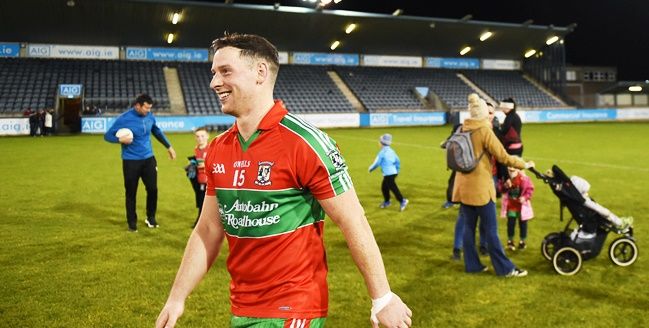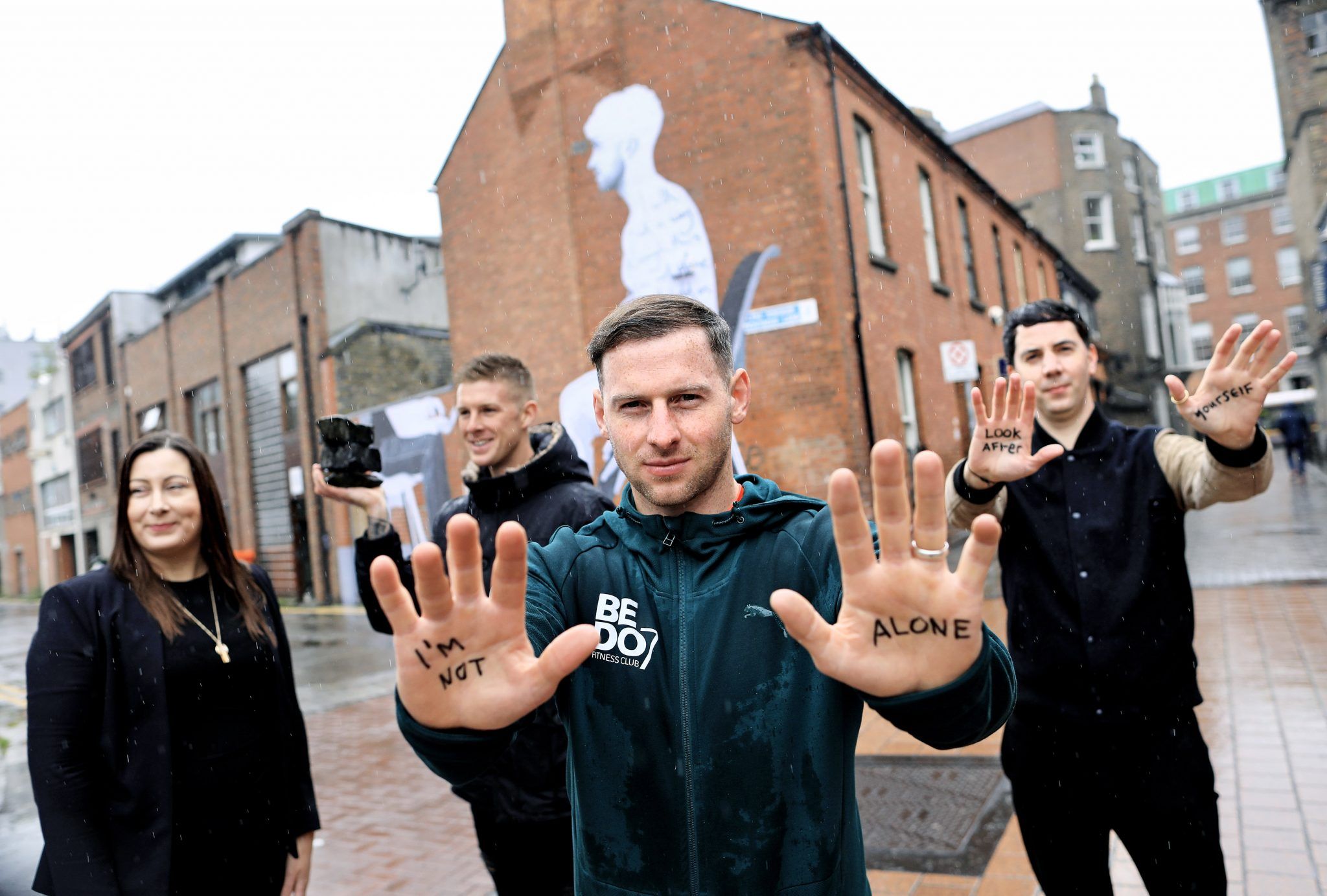

Share
7th July 2020
06:06pm BST

 "It's probably a year that we have to look at and say, do you know what, we haven't got that excuse anymore," he said on Monday's GAA Hour.
"Let's get on with it. It's great because we have young lads coming through as well, who if they rubbed off the experience of the six lads, it'll help them develop. Do you know, rubbing off the culture, leadership and so on..."
"It's probably a year that we have to look at and say, do you know what, we haven't got that excuse anymore," he said on Monday's GAA Hour.
"Let's get on with it. It's great because we have young lads coming through as well, who if they rubbed off the experience of the six lads, it'll help them develop. Do you know, rubbing off the culture, leadership and so on..."
 McMahon, an ambassador of the IACP and launching their #LookAfterYourself campaign, admits that it has been difficult in the past, to switch from county to club in such a short period of time.
"You're putting 40-odd hours a week into the county team. So it's hard to disconnect from one to the other - just say for example - the most difficult thing would be going from winning an All-Ireland final and then going back playing with your club two weeks later. It's hard to adapt into the club team from that.
"The thing is, you're trying to play your best, and your brain is like let's go, let's put it in. But your body is just wrecked. Your body is just not there. You're trying to work hard and run hard but your body is just not there. Especially for lads say that drink alcohol - don't drink for a year and then have a bender because they've won an All-Ireland final and then what comes with alcohol is this negative mindset and the fear you'd have like. So all of that plays its part in the body breaking down, your fatigued - then you try to hard because you feel like you're expected to do more. Then you pick up knocks and injuries and you're no good to the squad.
"But at the end of the day, you wouldn't be where you are without the club, without the people within the club who invested time and effort in you.
McMahon, an ambassador of the IACP and launching their #LookAfterYourself campaign, admits that it has been difficult in the past, to switch from county to club in such a short period of time.
"You're putting 40-odd hours a week into the county team. So it's hard to disconnect from one to the other - just say for example - the most difficult thing would be going from winning an All-Ireland final and then going back playing with your club two weeks later. It's hard to adapt into the club team from that.
"The thing is, you're trying to play your best, and your brain is like let's go, let's put it in. But your body is just wrecked. Your body is just not there. You're trying to work hard and run hard but your body is just not there. Especially for lads say that drink alcohol - don't drink for a year and then have a bender because they've won an All-Ireland final and then what comes with alcohol is this negative mindset and the fear you'd have like. So all of that plays its part in the body breaking down, your fatigued - then you try to hard because you feel like you're expected to do more. Then you pick up knocks and injuries and you're no good to the squad.
"But at the end of the day, you wouldn't be where you are without the club, without the people within the club who invested time and effort in you.
 "We're very grounded, Dublin players in general. The key thing for me is to make sure you never forget where you came from."
Overall, McMahon has used the lock-down as a means to regain the fitness he felt he lost over the last couple of years.
"The lockdown was great for me because 2017 and 2018 were quite difficult years for me because of my dad's illness and his passing. I didn't really want to play football then...I just wanted to spend time with my dad. I ended up just playing for him because he was telling me to, but I'd lost the love for it so for me, I've been on catch up mode to get fitter last year and this year. The lock-down has been great for me because it's helped me bridge that gap and get back up to where I need to."
You can listen to the Philly McMahon interview from The GAA Hour here.
https://soundcloud.com/sportsjoe-gaa-hour/shane-dowling-and-philly-mcmahon-interviews
Brought to you by the Irish Association for Counselling and Psychotherapy
"We're very grounded, Dublin players in general. The key thing for me is to make sure you never forget where you came from."
Overall, McMahon has used the lock-down as a means to regain the fitness he felt he lost over the last couple of years.
"The lockdown was great for me because 2017 and 2018 were quite difficult years for me because of my dad's illness and his passing. I didn't really want to play football then...I just wanted to spend time with my dad. I ended up just playing for him because he was telling me to, but I'd lost the love for it so for me, I've been on catch up mode to get fitter last year and this year. The lock-down has been great for me because it's helped me bridge that gap and get back up to where I need to."
You can listen to the Philly McMahon interview from The GAA Hour here.
https://soundcloud.com/sportsjoe-gaa-hour/shane-dowling-and-philly-mcmahon-interviews
Brought to you by the Irish Association for Counselling and Psychotherapy
Explore more on these topics: